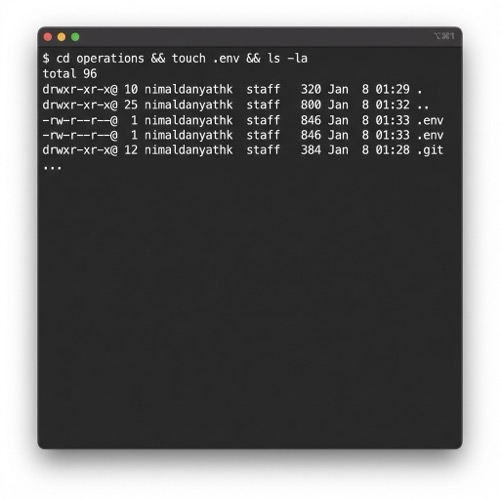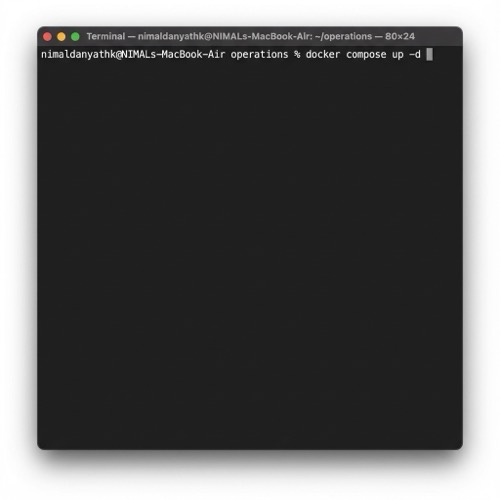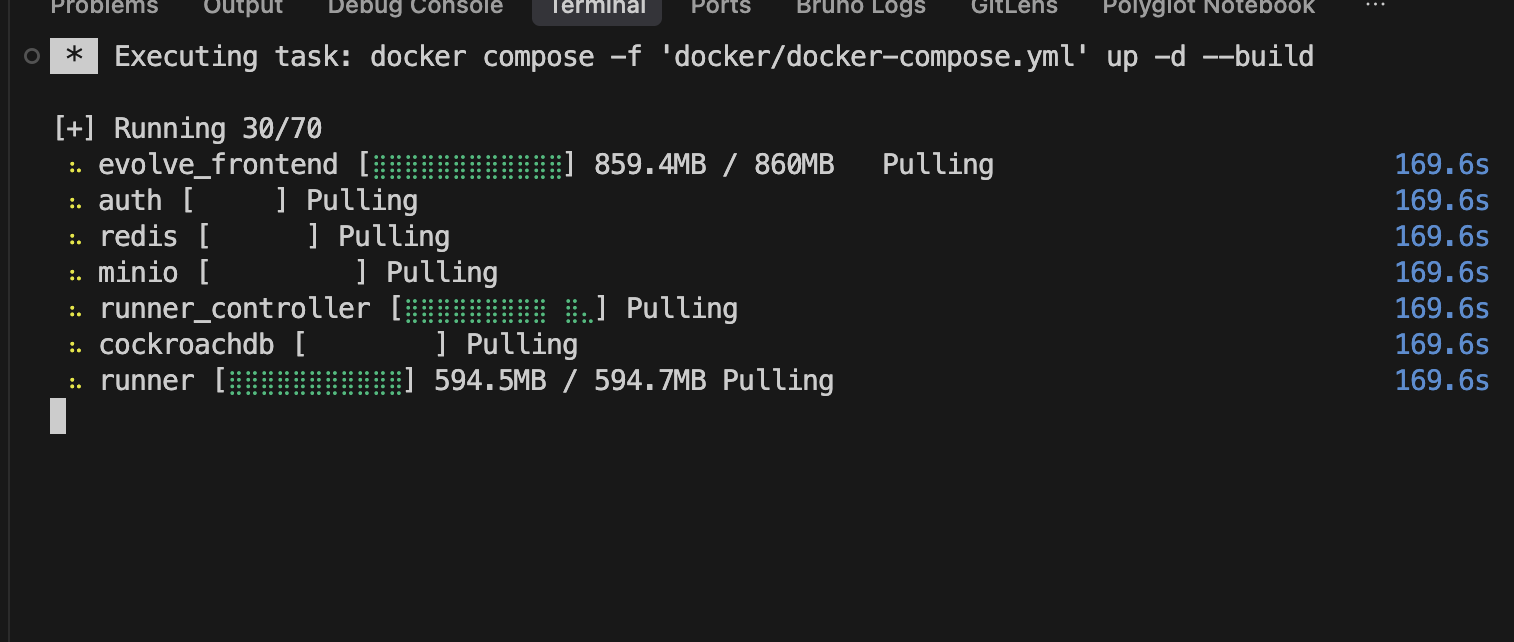Deploying EvOC Locally
This guide will help you deploy the backend services of the Evolutionary Algorithms On Click (EvOC) project locally using Docker Compose.
Clone DevOps Repo
Clone the Operations Repository
git clone https://github.com/Evolutionary-Algorithms-On-Click/operationsCreate a .env file
Navigate into the project folder and create an .env file:
touch .env
Paste Environment Variables
The MAILER_EMAIL and MAILER_PASSWORD fields should be populated with the email address and app password of the email account you configured as described in Get Started.
Paste the following environment variables into the .env file:
MINIO_ENDPOINT = host.docker.internal:9000
MINIO_ACCESS_KEY = minioadmin
MINIO_SECRET_KEY = minioadmin
COCKROACHDB_URL = postgresql://root@host.docker.internal:26257/defaultdb?sslmode=disable
MAILER_EMAIL = <mailer_email>
MAILER_PASSWORD = <mailer_pass>
FRONTEND_URL = http://localhost:3000
AUTH_HTTP_PORT = 5000
AUTH_GRPC_PORT = 5001
INIT_DB_FLAG = true
REDIS_URL= redis://host.docker.internal:6379/0
REDIS_QUEUE_NAME=task_queue
RUNNER_CONTROLLER_HTTP_PORT = 5002
AUTH_GRPC_ADDRESS = host.docker.internal:5001
NEXT_PUBLIC_BACKEND_BASE_URL=http://localhost:5002
NEXT_PUBLIC_AUTH_BASE_URL=http://localhost:5000
NEXT_PUBLIC_MINIO_BASE_URL=http://localhost:9000
# Set to true and add your API key to enable AI features.
NEXT_PUBLIC_AI=false
GOOGLE_GENERATIVE_AI_API_KEY=<YOUR_GEMINI_API_KEY>Run Services
Run all services using the Docker Compose .yml file. Execute this command inside the operations directory:
docker compose up -dAlternatively, click the Run All Services button at the start of the .yml file (if your IDE supports it):

The following services will start installing:

If the following statements are displayed after installation, you have successfully set up the backend:

Accessing EvOC
Once the services are up and running, you can access the EvOC backend at http://localhost:3000.
Clean Up
To clean up containers and images after using the framework, execute this command in the operations VS Code terminal:
docker rm -vf $(docker ps -aq) && docker rmi -f $(docker images -aq)CAUTION
This removes all stopped containers and images to free up space. You will lose all data related to EvOC.
